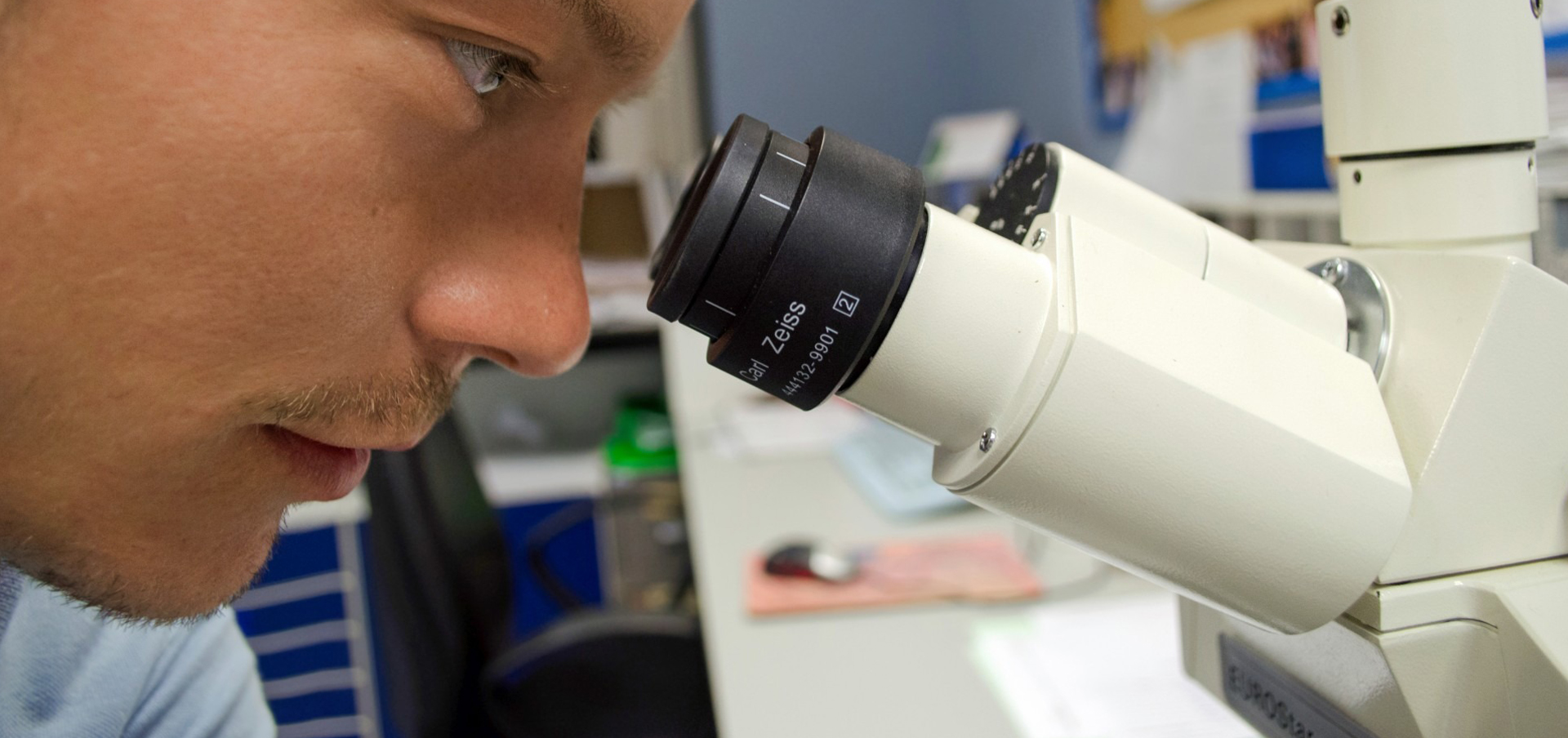Do you have an interest in anatomy? Do you want to work in the health field? And have you ever watched a crime investigation show on TV, seen the experts in the lab handling microscopic evidence, and thought: ‘How cool?!’? If so, a career as a histotechnician may be your calling. But what is a histotechnician (HT)? What does the job entail? And why is it so important in the health field? Here, Goodwin College will break it all down for you.
To put it simply: Histotechnicians study the anatomy cells and tissue of plants and animals, under light microscopes and electron microscopes. They detect tissue abnormalities and appropriate testing for tissue samples to ensure proper diagnoses. With this understanding, it’s easy to see why histotechnologists play such an important role in the health care world. A histotechnologist is trusted in handling very thin slices of tissue from human, animal or plant cells for microscopic examination. This is an important part of the intricate process of scientific investigation used in establishing and confirming patient diagnosis. Because of the histotechnologist‘s skillful application of sophisticated laboratory techniques, the seemingly invisible world of tissue structure becomes visible under a microscope – opening up a new world of treatments and discoveries!
Histotechnicians who graduate from Goodwin College with their Histology Degree go on to pursue careers in the following areas:
- Botany and forensic medicine
- Hospitals
- Immunopathology
- Industrial and university research
- Marine biology
- Pharmaceutical testing
- Veterinary
According to Salary.com, Histotechnicians in Connecticut earn an average salary of $61K+. It’s a promising and rapidly growing field in which you could enjoy a long and successful career. Today, there are more jobs for Histologic Technicians than there are well-trained, qualified professionals to fill those positions. The future for long-term employment looks bright, and the need is great throughout the country for people like you!
Goodwin College students who earn certification in histology go on to work in entry-level positions in the following settings:
- Hospital Labs
- Private Labs
- Pharmaceutical Labs
- Research Labs
- State Laboratories
Daily Duties of a Histotechnician
If you’re still wondering what histotechnicians do, here’s a simple breakdown: Histotechnicians cut sections of body tissues for microscopic examination using microtomes. They embed tissue specimens into paraffin wax blocks or infiltrate tissue specimens with wax. Another important task for a histotechnologist is to freeze tissue specimens. HTs also stain tissue specimens with dyes or other chemicals to make cell details visible under microscopes. They, of course, must examine their slides under microscopes, to ensure that the tissue preparation meets lab requirements.
In a typical day of work, a histotechnician will complete the following tasks:
- Collect biological specimens from patients
- Prepare biological specimens for laboratory analysis
- Prepare biological specimens for laboratory analysis
The Importance of Histotechnicians
Histotechnicians play a critical role in medical profession. From identifying the cells that result in a cancer diagnosis to examining tissues in autopsies, HTs are a fundamental part of the laboratory. Their work not only helps doctors – but it has a direct impact on patients’ lives. Thanks to a proper histology exam, a person can be given an early diagnosis and treatment. It can literally mean a difference between life and death! But the job of a histotechnician is one that requires patience, mechanical ability, and knowledge of biology, immunology, molecular biology, anatomy, and chemistry. Should you choose to pursue the field of histology, you must be prepared to work with delicate instruments and automated equipment as well as chemicals, knives, and glass slides. You must also have good hand-eye coordination and dexterity. This can all be learned in the right histotechnician program.
“The techniques in histology require experience and practice. Skilled histotechnicians are valuable.” – Daniel Grogan, Goodwin College Histology Student.
The histotechnician programs at Goodwin College offer students hands-on experience assessing and detecting tissue abnormalities, while studying the microscopic anatomy of cells and tissues. Here, we offer an Associate Degree in Histology, as well as a special Histology certificate program. Goodwin also offers flexible schedules catered to working students with busy lives.
Learn more about the Histotechnician programs at Goodwin College by visiting our website, or calling us toll-free at 800-889-3282.
Goodwin University is a nonprofit institution of higher education and is accredited by the New England Commission of Higher Education (NECHE), formerly known as the New England Association of Schools and Colleges (NEASC). Goodwin University was founded in 1999, with the goal of serving a diverse student population with career-focused degree programs that lead to strong employment outcomes.

